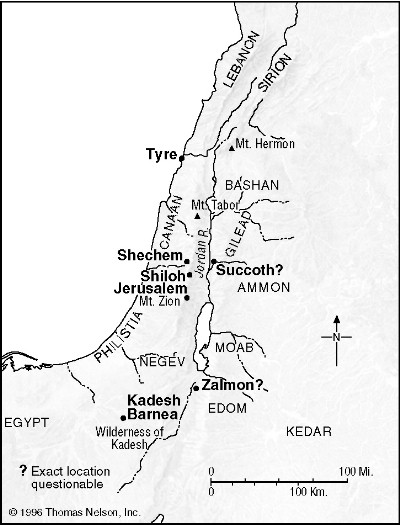Psalm 60 (cf. Psalm 108, 2 Samuel 8, and 1 Chronicles 18)
As can be seen in the superscription, this psalm coincides with 2 Samuel 8 and 1 Chronicles 18. This is the second longest superscription in the psalter. Only Psalm 18 is longer. The Lily of the Covenant is also found in Psalm 80. It is a teaching psalm (a mitkam) and David wrote it. The setting is found in a battle and mentions three enemies David faced in the above passages. They were Aram-naharaim (highlands of two rivers or Mesopotamia [land between two rivers]), Aram-zobah (central Syria), and Edom in the Valley of Salt (near the southern portion of the Dead Sea). David was waging war against the Arameans in the north, the Edomites (and Moabites) invaded from the south, forcing David to send Joab to deal with the latter force. This psalm laments the reversal of David’s plans. The outline for the psalm is David’s lament (1–5), a certainty of David being heard (6–8), and a final plea for God to deliver Israel (9–12).
David calls for a pause (Selah) after verse four asking us to contemplate the demise of the army by the hand of God. His only response is to call out to that same God to deliver them and change what has occurred.
The closing verses, 11-12, show where David sought his ultimate help. He turned to God to save him. The Hebrew word translated “help” is the word for salvation. He recognizes the deliverance only comes from God for man is incapable of saving. Where is your trust placed? Ask that question in terms of finances, family, friends, education, et al.
To better understand the places mentioned, look at the map below.


I think this psalm shows how when God doesn’t respond to us on our timing or does not give us the the things we ask for right away, we get frustrated and angry with Him and feel as though He has forsaken us. But the end of this psalm shows that ultimately, we need Him and and when we turn to Him, and continue to hope in Him, He will help us and make us prosper.